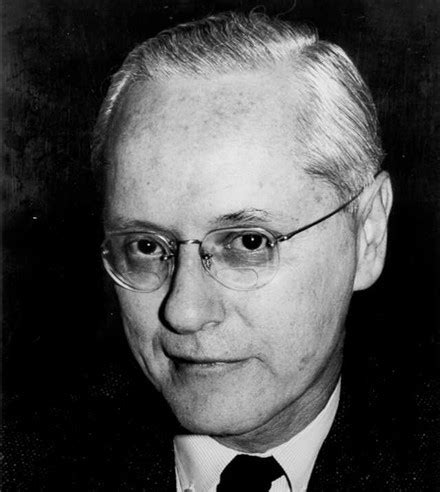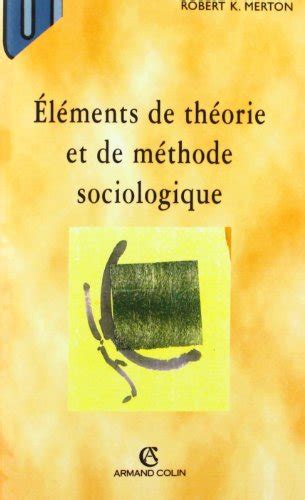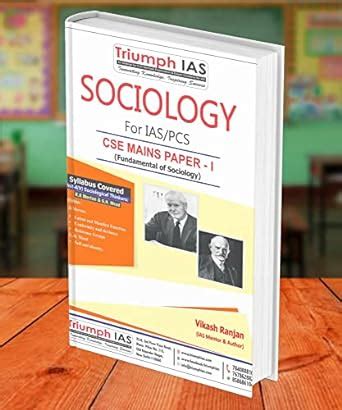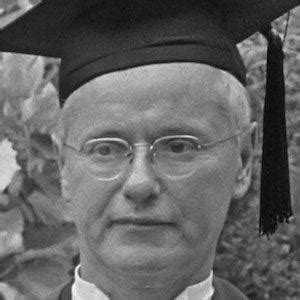R K Merton

The name R.K. Merton may not be as well-known to the general public as some other renowned scholars, but within the academic world, particularly in the fields of sociology and social theory, his contributions have left an indelible mark. Robert King Merton, often regarded as one of the founding fathers of modern sociology, pioneered innovative research methodologies and offered groundbreaking insights into the complexities of human behavior and social structures. This article delves into the life, work, and enduring legacy of R.K. Merton, shedding light on his remarkable intellectual journey and the profound impact he had on the discipline of sociology.
The Early Life and Educational Journey of R.K. Merton

Robert King Merton was born on July 4, 1910, in Philadelphia, Pennsylvania, to a family of immigrants from Eastern Europe. His father, a factory worker, and his mother, a homemaker, instilled in him a strong work ethic and a passion for learning. Despite facing financial challenges, Merton’s intellectual curiosity flourished, and he excelled academically from an early age.
Merton's educational journey began at South Philadelphia High School, where he displayed exceptional talent in a wide range of subjects. His academic prowess earned him a scholarship to Temple University, where he initially pursued a degree in journalism. However, it was during his undergraduate studies that Merton's interest in sociology was sparked, leading him to switch his major and embark on a path that would shape the course of his life.
At Temple University, Merton had the opportunity to study under renowned sociologist George E. Simpson, who became a mentor and a significant influence on his intellectual development. Simpson's emphasis on empirical research and statistical analysis left a deep impression on Merton, shaping his approach to sociological inquiry throughout his career.
The Academic Odyssey: Merton’s Graduate Studies
After graduating from Temple University with a bachelor’s degree in sociology, Merton continued his academic pursuit at Harvard University, one of the most prestigious institutions in the United States. There, he studied under the guidance of renowned sociologist Pitirim Sorokin, who further nurtured Merton’s interest in the quantitative analysis of social phenomena.
During his time at Harvard, Merton's intellectual curiosity flourished as he delved into various aspects of sociology. He developed a keen interest in social stratification, deviance, and the interplay between social structures and individual behavior. Merton's graduate studies were marked by his relentless pursuit of knowledge and his commitment to advancing the field of sociology through rigorous empirical research.
In 1938, Merton defended his doctoral dissertation, titled "Science, Technology, and Society in Seventeenth-Century England," which was later published as a book. This work showcased his early mastery of empirical research methods and his ability to combine historical analysis with sociological insights. It laid the foundation for his subsequent groundbreaking contributions to the field.
| Education Milestones | Details |
|---|---|
| Undergraduate Degree | Bachelor's in Sociology from Temple University |
| Graduate Studies | Pursued at Harvard University under Pitirim Sorokin |
| Doctoral Dissertation | "Science, Technology, and Society in Seventeenth-Century England" |

The Academic Career of R.K. Merton: Shaping the Discipline

Upon completing his doctoral studies, R.K. Merton embarked on an illustrious academic career that would span several decades and establish him as one of the most influential sociologists of the 20th century. His academic appointments took him to prestigious institutions, where he not only taught and mentored students but also made significant contributions to the development of sociological theory and methodology.
Harvard University: Early Academic Appointments
Merton’s academic journey began at Harvard University, where he served as a teaching fellow and instructor in the Department of Social Relations. During this time, he collaborated closely with Talcott Parsons, a prominent sociologist known for his work on social systems theory. Together, they developed a comprehensive understanding of social structure and its impact on individual behavior, laying the groundwork for Merton’s later contributions to sociological theory.
At Harvard, Merton also established himself as a pioneer in the field of social stratification. His seminal work, "Social Structure and Anomie," published in 1938, introduced the concept of anomie, a state of normlessness or social disorder, and its relationship to deviant behavior. This theory, which Merton further refined throughout his career, had a profound impact on the study of deviance and social control.
Columbia University: A New Academic Home
In 1941, R.K. Merton accepted a position at Columbia University, where he spent the majority of his academic career. At Columbia, he became a full professor and held various influential roles, including the founding director of the Center for Contemporary Studies and the chairman of the Department of Sociology. His presence at Columbia had a transformative effect on the university’s sociology department, elevating it to a position of international prominence.
During his time at Columbia, Merton's research and teaching focused on a wide range of sociological topics. He continued his exploration of social stratification, deviance, and the sociology of science. His work on the sociology of science, particularly his concept of the "Matthew Effect," which posits that eminent scientists often receive disproportionate credit for their contributions, was groundbreaking and continues to shape the field to this day.
Merton's influence extended beyond the classroom and into the wider academic community. He served as the president of the American Sociological Association in 1957 and was a fellow of the American Academy of Arts and Sciences. His contributions to the discipline were recognized with numerous awards and honors, including the National Medal of Science, the highest scientific honor in the United States.
| Academic Institutions | Positions and Contributions |
|---|---|
| Harvard University | Teaching fellow, instructor; collaboration with Talcott Parsons; "Social Structure and Anomie" |
| Columbia University | Full professor, founding director of the Center for Contemporary Studies, chairman of the Department of Sociology; research on social stratification, deviance, and sociology of science |
Theoretical Contributions: Merton’s Legacy in Sociology
R.K. Merton’s theoretical contributions to sociology are vast and have had a lasting impact on the discipline. His work not only shaped the way sociologists understand social phenomena but also provided a foundation for future research and theoretical development. Here, we delve into some of his most significant theoretical concepts and their enduring influence.
Theories of Social Structure and Anomie
One of Merton’s most renowned contributions is his theory of social structure and anomie. This theory, developed in the 1930s, provided a comprehensive framework for understanding the relationship between social structure, cultural norms, and deviant behavior. Merton posited that when there is a mismatch between culturally prescribed goals and the socially structured means to achieve those goals, a state of anomie arises, leading to deviant behavior as a response to this social strain.
Merton's theory of anomie was groundbreaking in its recognition of the role of social structure in shaping individual behavior. It challenged the dominant theories of the time, which often attributed deviant behavior solely to individual psychopathology. By emphasizing the importance of social factors, Merton's theory offered a more nuanced understanding of deviance and its societal roots.
The Middle-Range Theory Approach
Merton is also credited with advocating for the development of middle-range theories in sociology. Middle-range theories are those that focus on specific, observable social phenomena, rather than grand, overarching theories of society. Merton believed that by concentrating on more manageable, empirical research, sociologists could develop theories that were both testable and relevant to real-world social issues.
His call for middle-range theories reflected his commitment to empirical research and his belief in the importance of building sociological knowledge incrementally. This approach has had a profound influence on the practice of sociological research, guiding scholars towards more focused and rigorous investigations of social phenomena.
The Matthew Effect and Cumulative Advantage
Merton’s work in the sociology of science introduced the concept of the “Matthew Effect,” named after the biblical verse “For unto every one that hath shall be given, and he shall have abundance: but from him that hath not shall be taken even that which he hath.” This theory posits that eminent scientists often receive disproportionate credit for their contributions, while less prominent scientists, even if their work is equally meritorious, may go unrecognized.
The Matthew Effect, which Merton described in his 1968 article "The Matthew Effect in Science," has had a profound impact on the understanding of scientific recognition and achievement. It has also been extended to other fields, such as academia, where it is used to explain the accumulation of advantages and disadvantages over time, a phenomenon known as cumulative advantage or the "Matthew Effect in Social Settings."
| Theoretical Concepts | Description |
|---|---|
| Social Structure and Anomie | Explains the relationship between social structure, cultural norms, and deviant behavior |
| Middle-Range Theory | Advocates for focused, empirical research leading to testable and relevant theories |
| The Matthew Effect | Describes the disproportionate recognition given to eminent scientists, with implications for understanding scientific achievement and recognition |
Merton’s Influence on Modern Sociology: A Lasting Legacy
The impact of R.K. Merton’s work on modern sociology is immeasurable. His contributions have shaped the way sociologists approach research, theory development, and the understanding of social phenomena. Merton’s emphasis on empirical research, his groundbreaking theories, and his commitment to advancing the discipline have left an enduring legacy that continues to guide and inspire sociologists around the world.
Empirical Research and Methodological Innovations
Merton’s commitment to empirical research and his innovative use of research methodologies have had a profound influence on the practice of sociology. He was a strong advocate for the use of quantitative methods, statistical analysis, and rigorous empirical investigation. His work set a high standard for sociological research, emphasizing the importance of data-driven analysis and the development of testable hypotheses.
Merton's methodological innovations, such as his development of the focus group method, have become integral tools in the sociologist's toolkit. His emphasis on the importance of research design, data collection, and analysis has ensured that sociology remains a robust and scientifically grounded discipline.
Theoretical Development and Conceptual Innovations
Merton’s theoretical contributions, as outlined earlier, have had a transformative effect on sociological theory. His theories of social structure and anomie, middle-range theory, and the Matthew Effect have provided sociologists with powerful conceptual frameworks for understanding a wide range of social phenomena. These theories have not only guided research but have also inspired further theoretical development and refinement.
Merton's emphasis on the interplay between social structure and individual behavior, his recognition of the importance of social context, and his focus on observable social phenomena have shaped the very foundations of sociological thought. His work has inspired countless sociologists to explore new avenues of research and to develop theories that are both empirically grounded and conceptually innovative.
Recognition and Awards: A Testament to His Impact
R.K. Merton’s contributions to sociology have been widely recognized and celebrated. Throughout his career, he received numerous awards and honors, including the National Medal of Science, the highest scientific honor bestowed by the United States. His election to the American Academy of Arts and Sciences and his presidency of the American Sociological Association further testify to his standing within the sociological community.
Merton's work has also been the subject of extensive scholarly analysis and discussion. His theories and concepts have been extensively cited and built upon by generations of sociologists, ensuring that his legacy remains vibrant and relevant. The continued influence of his work is a testament to the depth and breadth of his contributions to the discipline.
| Recognition and Awards | Details |
|---|---|
| National Medal of Science | Highest scientific honor in the United States |
| American Academy of Arts and Sciences | Election as a fellow |
| American Sociological Association | Served as president in 1957 |
Conclusion: The Enduring Impact of R.K. Merton

R.K. Merton’s life and work serve as a testament to the power of intellectual curiosity and rigorous academic pursuit. His contributions to sociology have shaped the discipline and continue to guide and inspire sociologists worldwide. From his early work on social structure and anomie to his later theories on the sociology of science, Merton’s legacy is one of innovation, empirical rigor, and a profound understanding of the complexities of human society.
As we reflect on the life and work of R.K. Merton, we are reminded of the enduring value of empirical research, theoretical innovation, and a commitment to advancing our understanding of the social world. His legacy inspires us to continue exploring the complexities of human behavior and social structures, pushing the boundaries of knowledge and contributing to the ongoing dialogue within the field of sociology.
What is R.K. Merton’s theory of social structure and anomie?
+Merton’s theory of social structure and anomie posits that when there is a mismatch between culturally prescribed goals and the socially structured means to achieve those goals, a state of anomie arises, leading to deviant behavior as a response to this social strain.
How did Merton contribute to the development of middle-range theories in sociology?
+Merton advocated for the development of middle-range theories, which focus on specific, observable social phenomena rather than grand, overarching theories of society. He believed that by concentrating on more manageable, empirical research, sociologists could develop theories that were both testable and relevant to real-world social issues.
What is the Matthew Effect, and how did Merton introduce this concept?
+The Matthew Effect, introduced by Merton, describes the disproportionate recognition given to eminent scientists, with implications for understanding scientific achievement and recognition. It is named after the biblical verse “For unto every one that hath shall be given, and he shall have abundance: but from him that hath not shall be taken even that which he hath.”



